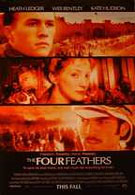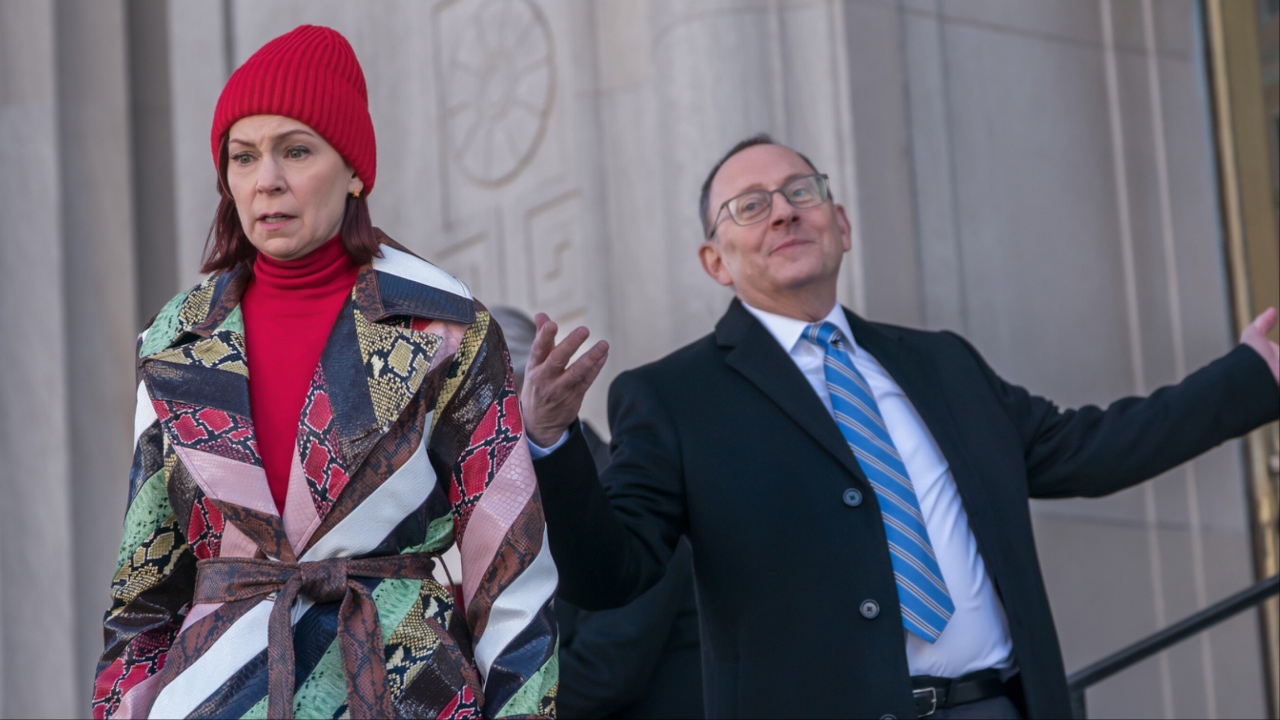I wonder if Heath Ledger sounds British to the Brits. To my untrained American ear, his accent seems indistinguishable from that of the legitimately English folks around him. Still, I find myself asking if the citizens of Great Britain will sit and question why we Americans insist on sticking beer-swilling Australians in movies about historically British men. In the Four Feathers at least, Ledger seems every bit as much a Redcoat as Mel Gibson did a Scot. Depending on your viewpoint, that’s basically a good thing.
The Four Feathers stars Australian born Heath Ledger as Harry, a British officer who resigns his commission just before his young regiment is sent to battle in the Sudan. He subsequently receives four feathers from his friends as symbols of cowardice, prompting him to take drastic action to prove his mettle. Broken and abandoned, he journeys to the Sudan in search of his regiment. His plans are uncertain, he only seeks to help them and hopefully in the process help himself.
Dashing even when covered in dirt and mud, Ledger is capable as young Harry, though often I felt his character lacked direction. But this is a problem with the entire film and not really a reflection on Ledger’s performance. Four Feathers just never seems truly sure what it wants to be or where it wants to go. Instead it gets lost in a mish mash weave of half developed love triangles, war stories, and morality tales that never seem to really receive enough attention. We sympathize with Ledger’s character, though we have been given no real reason to do so. His motivations are continually unclear, as are those of the people around him.
Harry’s girlfriend, played by Kate Hudson (doing a wonderful impression of a saggy, freckled, wineskin), is quick to abandon him at the first sign of trouble. Though she’s already proven herself unworthy and fickle, we’re still supposed to somehow root for them to get back together. His friends shun him, while Jack (Wes Bentley), the most central of the film’s secondary characters, remains faithful to him at heart… but only until he finds time to swoop in and romance Harry’s ex-fiancée. Jack is the only friend who never gives Harry a feather, an important point, which somehow the movie never actually gets around to exploring. Perhaps Jack felt it might be more effective to simply soil Harry’s woman. Yet Harry goes on, heedless of their betrayal, intent on proving something, though even he really doesn’t know what. Apparently his resignation was a blow, because Jack repeatedly tells us that Harry is the best soldier in the regiment. Yet the film seems to go out of its way time and again to prove to us that in fact Jack is by far the better warrior and leader.
So, leaving the audience confused and unsure, Harry wanders out into the desert to prove something to the disloyal and likely just get himself killed. He falls in with slavers, who are obviously novices or mentally damaged since they fail to take any precautions to keep their slaves from escape. The obvious happens and Harry ends up without water on a sand dune until an obligatory black mystic shows up to give him some homespun desert guidance. From there on things go badly with lots of lovely explosions and some beautifully filmed desert battle footage, which is probably the most noteworthy thing about the film.
Despite its odd incongruities, the score is rousing and Director Shakur Kapur’s cinematography is gorgeous, as one would expect from any high caliber epic. If nothing else it’s nice to see a film that doesn’t portray all colonial British soldiers as nothing more than a bunch of mindless, arrogant, baby killers. Some of them at least, are given blood-pumping hearts to match their garishly red jackets. Four Feathers does that, without shying away from the brutality of British expansionism and strikes a lovely balance between the realities of both sides.
This isn’t a fluffy romance, but it’s not exactly a gritty war movie either. The Four Feathers just doesn’t know where it really wants to go or what it wants to be. Like a camel in heat, Four Feathers runs in circles chasing its own mirage through the desert, only to end right back up where it started. But the vistas are sweeping and the acting is far from painful, delivering at just enough interest to keep The Four Feathers from collapsing into a messy pile of over-heated Sudanese camel spit.
| Row 0 - Cell 0 | Row 0 - Cell 1 |
| Row 1 - Cell 0 | Row 1 - Cell 1 |
| Row 2 - Cell 0 | Row 2 - Cell 1 |











